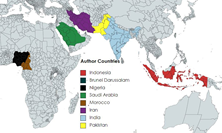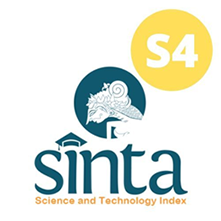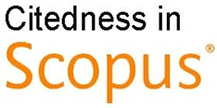Fuzzy Logic Method to Control Evenly Distributed and Stable Waterbath Temperature with Four Heaters
Abstract
Water baths are commonly used in scientific fields to incubate samples at specific temperatures. The temperature of the water bath must be controlled precisely, because even the slightest temperature variation can affect the results of the experiment. It can handle imprecise, uncertain and incomplete information, making it suitable for temperature control in water baths. This research aims to determine the distribution and stability of fuzzy logic control to control the temperature of a water bath with four heaters. Even heat distribution from the four heaters will ensure consistent water bath temperature throughout the bath. This research uses an Arduino microcontroller to process the temperature sensor output from the DS18B20, then the processed temperature value will be displayed on the TFT LCD. The independent variable in this research is the temperature value, while the dependent variable is the DS18B20 temperature sensor. The largest error value from the module measurements is at a temperature setting of 30 ºC on the 2nd temperature sensor with an error value of 1.43%. Meanwhile, the smallest error value is found at a temperature setting of 35 ºC on the 1st and 4th temperature sensors with an error value of 0.01%. Data collection used a digital thermometer comparison tool with 10 repetitions as a temperature sensor reference tool. The results obtained using this sensor are more stable and have a high accuracy value. The results of the research show that the temperature difference between points 1 to 4 when viewed from the error percentage is very small, or it can be said that the temperature distribution is even. The conclusion from these results is that the module has a stable temperature value and the error value is low and is still within the tolerance limit. permitted is ±5%.

This work is licensed under a Creative Commons Attribution-ShareAlike 4.0 International License.
Authors who publish with this journal agree to the following terms:
- Authors retain copyright and grant the journal right of first publication with the work simultaneously licensed under a Creative Commons Attribution License that allows others to share the work with an acknowledgement of the work's authorship and initial publication in this journal.
- Authors are able to enter into separate, additional contractual arrangements for the non-exclusive distribution of the journal's published version of the work (e.g., post it to an institutional repository or publish it in a book), with an acknowledgement of its initial publication in this journal.
- Authors are permitted and encouraged to post their work online (e.g., in institutional repositories or on their website) prior to and during the submission process, as it can lead to productive exchanges, as well as earlier and greater citation of published work (See The Effect of Open Access).











